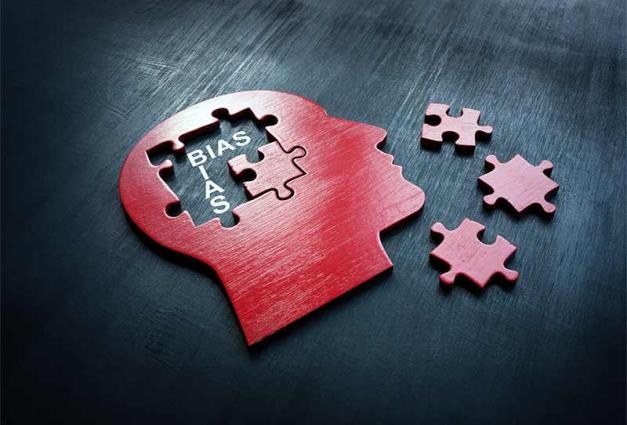Which of the following two people is more of a hypocrite?
-
Person A says they support immigration because it's the morally right thing to do, but later, they vote to restrict it.
-
Person B says they support immigration, too, but because it's the practical thing to do, then they later vote against it.
If you're like most people, you probably called Person A the bigger hypocrite. But both Person A and B said one thing and then contradicted it in the same way. And yet, even when people are equally hypocritical, some still seem more hypocritical than others—which can lead to harsher consequences. Like more mistrust and reduced support for them and their endeavors.
Hypocrisy Magnified
Tamar Kreps and colleagues in 2017 found that when a leader, like a politician or a boss, changes their mind on a position they held for moral (vs. practical) reasons, they were judged as more hypocritical. Because of this, these leaders received less support from people, even though objectively, they were not more hypocritical than people who changed their minds for practical reasons.
Why do things seem more hypocritical when they involve morality? In new research, my colleagues and I discovered that the answer runs deeper than just moral hypocrisy. We found that perceivers' surprise at hypocrisy based on morality (vs. practicality) is what amplifies these judgements. And by understanding surprise's role in this effect, we show how we can predict other instances of magnified hypocrisy, too.
Surprise!
In social psychology, there is an influential theory known as "decision affect theory" (by Barbara Mellers and colleagues in 1997). It offers a straightforward way to understand how we evaluate things.
According to decision affect theory, people feel positive or negative experiences more intensely when they are surprising. For example, expecting an A on a test and receiving a C feels a lot worse than expecting a C and receiving a C.
So, when it came to the perception that hypocrisy is worse when it has a moral rather than a practical basis, my colleagues and I wondered whether this might be due to surprise. When someone switches from a moral stance (vs. a practical one), is it more surprising? And does this amplify perceptions of their hypocrisy?
The Evidence
We first discovered that people make a number of assumptions about a person's opinion when it's morally based. But, there was one specific assumption relevant to hypocrisy:
People don't expect others' moral positions to change. So, when that other person does shift their belief… Surprise!
In multiple studies, we presented participants with one of two carefully written scenarios. In both, the person was hypocritical on their position toward capital punishment. However, in one scenario, the hypocritical act violated a moral belief, whereas in the other, it violated a practical belief. Other than these differences, the scenarios were identical.
The participants in our studies rated the moral violations as more hypocritical. Additionally, though, we saw that participants expected the person with a moral opinion to stick to their position, which made it more surprising when they changed their minds.
Further, we found we could reduce the magnified hypocrisy effect if we simply made people feel less surprised when someone reversed their moral stance. For example, if participants knew this person happened to overhear moral arguments against their current stance, it was less surprising when they ultimately switched their position. As a result, that person seemed less hypocritical!
It Doesn't Stop There
Surprise helps explain more than moral hypocrisy. For example, we found that when people violated a belief that they expressed with confidence (vs. doubt), they were rated as more hypocritical, too.
Why? Because changing your mind on an opinion you held confidently is surprising.
Our research gives a fresh perspective on the psychology of hypocrisy, helping us understand prior findings as well as predicting new ones. And it also offers some advice to readers.
Unfortunately, everyone is a hypocrite at one point or another. People change their minds or make choices that don't line up with their core values. So if you think people might view you as hypocritical, do whatever you can to reduce how surprised people will be when your hypocrisy is revealed.
Describe how you came across compelling arguments, or portray yourself as someone who changes their mind when given rational arguments. Making it less surprising when you ultimately contradict yourself will make you seem less hypocritical.
I mean, you'll still be a hypocrite—but at least your reputation won't be tarnished as much as it could've been.
For Further Reading
Mellers, B. A., Schwartz, A., Ho, K., & Ritov, I. (1997). Decision affect theory: Emotional reactions to the outcomes of risky options. Psychological Science, 8(6), 423-429. https://doi.org/10.1111/j.1467-9280.1997.tb0045
Kreps, T. A., Laurin, K., & Merritt, A. C. (2017). Hypocritical flip-flop, or courageous evolution? When leaders change their moral minds. Journal of Personality and Social Psychology, 113(5), 730. https://doi.org/10.1037/pspi0000103
Teeny, J. D., Lanzalotta, J. V., & Petty, R. E. (2023). Understanding the Magnitude of Hypocrisy in Moral Contradictions: The Role of Surprise at Violating Strong Attitudes. Personality and Social Psychology Bulletin (OnlineFirst). https://doi.org/10.1177/0146167223117777
Jake Teeny is an assistant professor of marketing at the Kellogg School of Management at Northwestern University. More information about his research and work can be found at https://EverydayPsych.com.




